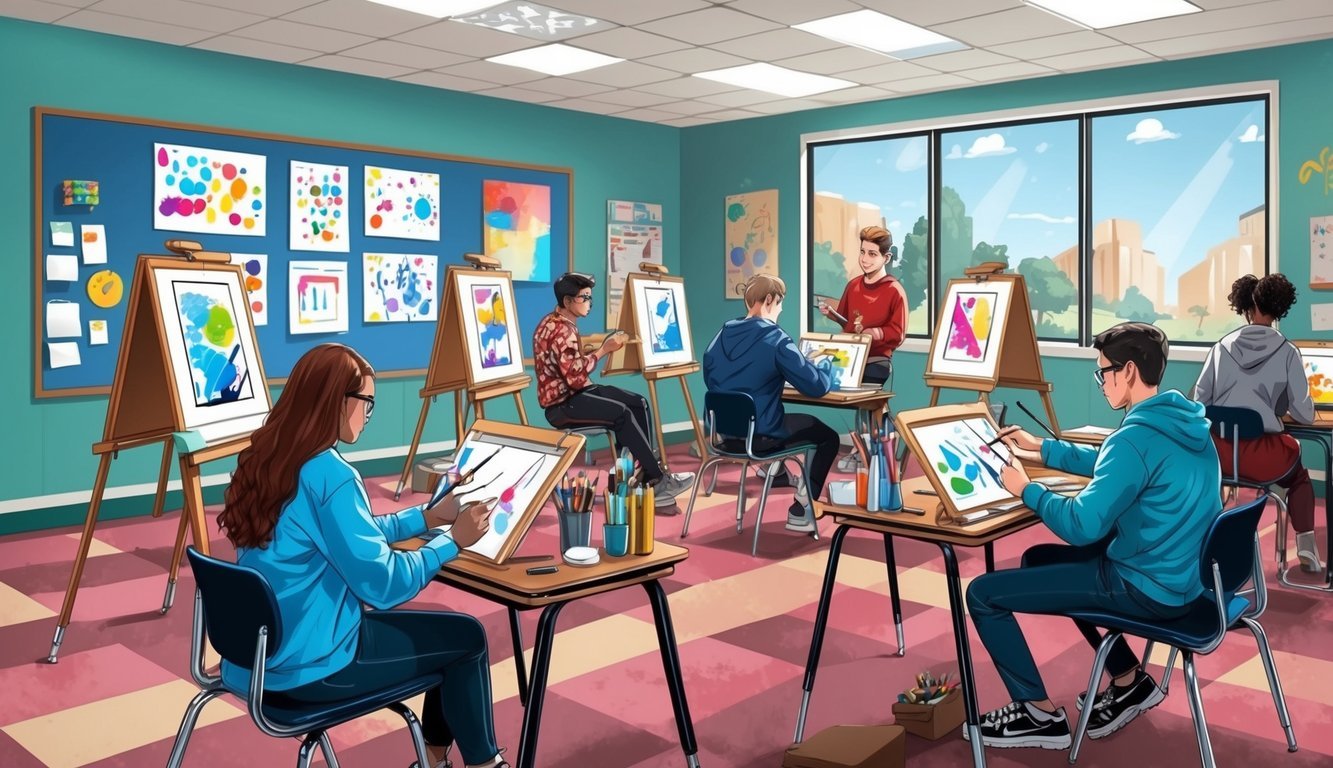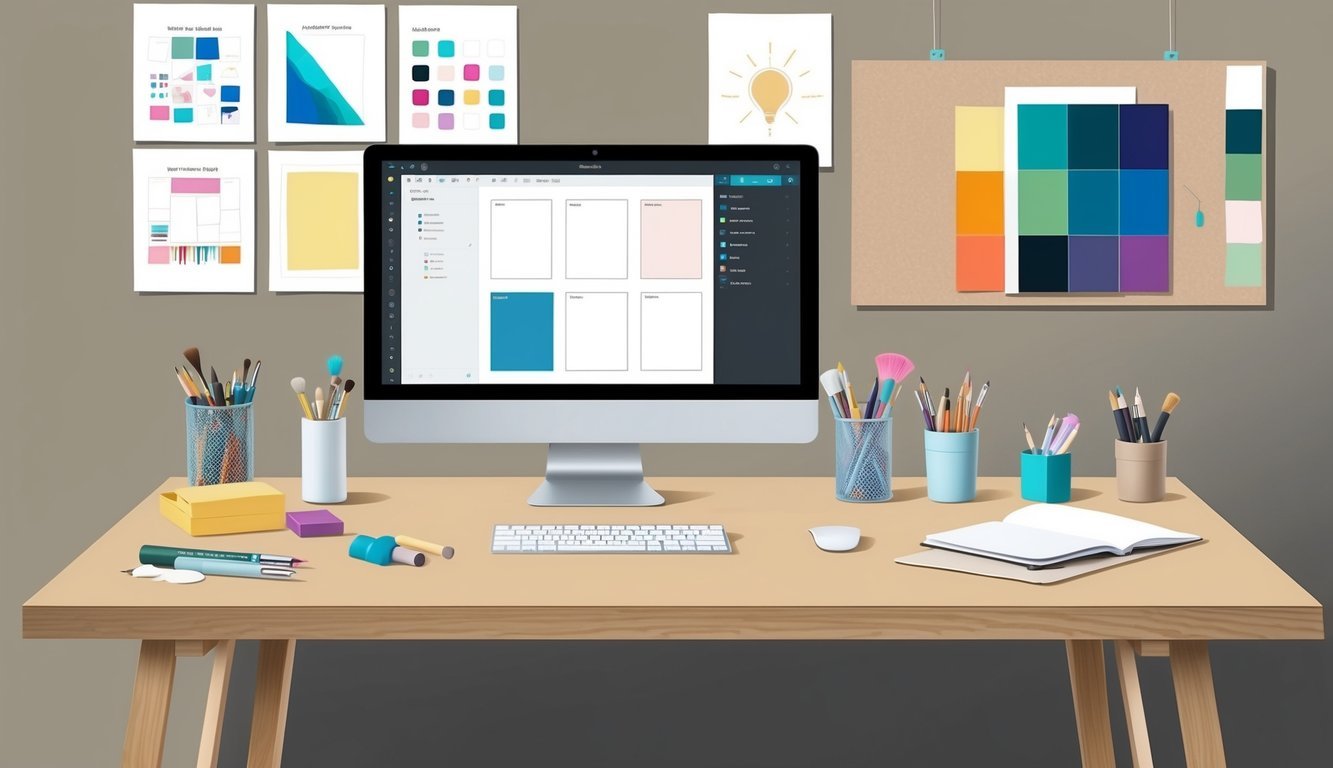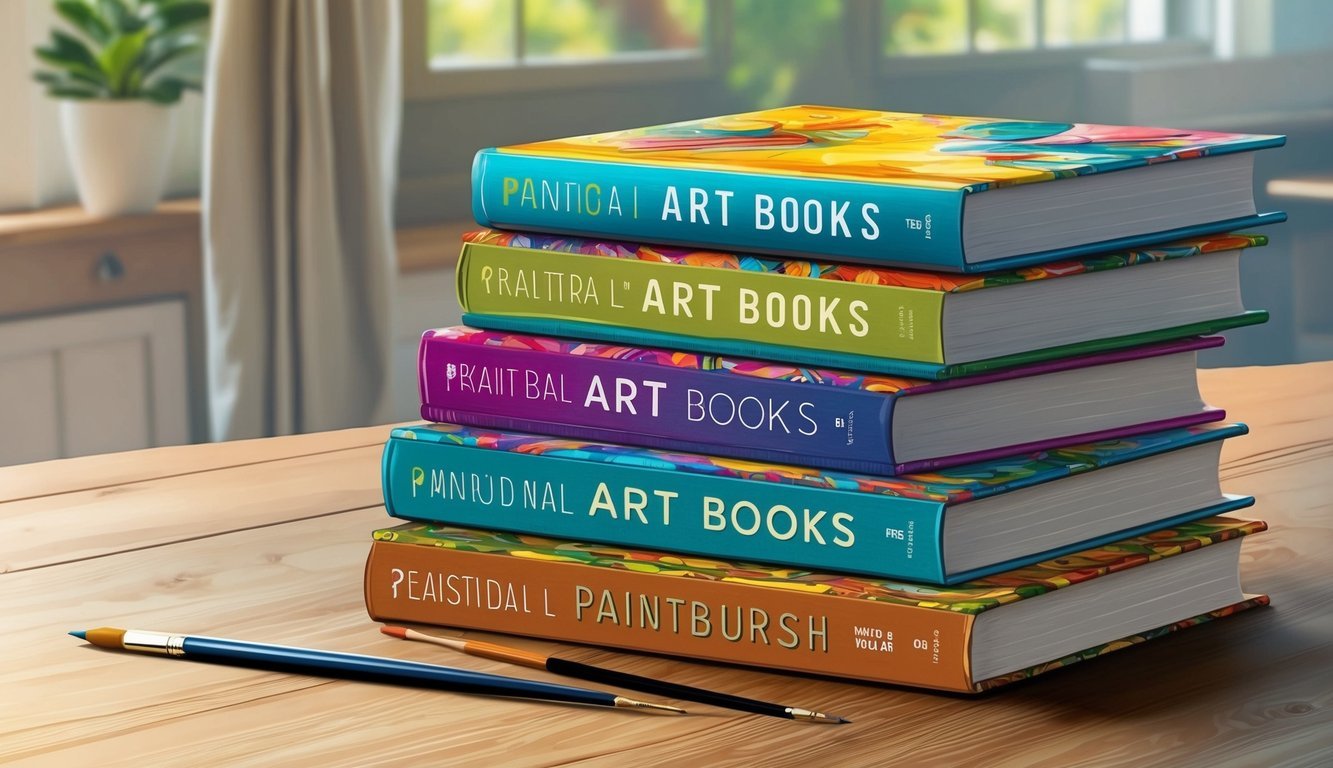Thinking about jumping into the world of concept art? You’ve come to the right place! These courses are just what you need to get those creative juices flowing and start bringing your imagination to life.
Whether you dream of designing characters for epic games or crafting stunning visuals for films, these resources have you covered.

Take online concept art classes from some of the industry’s top artists. You might learn how to use color effectively to convey emotion, or how to transform basic ideas into elaborate designs.
The best courses blend theory with hands-on practice, so you’ll be creating impressive concept art in no time.
1) The Art Department Concept Art Bootcamp
Hey! Ready to kickstart your concept art journey? Check out the Art Department Concept Art Bootcamp.
This program is packed with everything you need to get started on the right foot.
You’ll dive into designing characters, props, and environments, all while having a bit of fun.
It’s a great fit if you’re looking to polish your design skills.
This bootcamp gives you a taste of the whole concept art process.
Get ready for hands-on exercises that will help you grow as an artist and give that creative spark a nice nudge.
By the end, you’ll have a stronger understanding of concept art and a handful of impressive pieces for your portfolio.
Sounds like a win, right?
2) Schoolism (Bobby Chiu: Fundamentals of Concept Art)
If you’d like to learn from a pro, Bobby Chiu’s Fundamentals of Concept Art course on Schoolism is worth checking out.
Bobby’s an award-winning digital artist with an impressive resume.
This course takes you deep into digital painting using Photoshop.
He’ll show you how to apply traditional art techniques in a digital space—pretty cool, right?
With nine lessons packed with wisdom, you’ll pick up Bobby’s tips for crafting stunning concept art and digital paintings.
It’s a solid choice if you want to level up your skills while keeping it fun.
Schoolism offers a bunch of other courses too, focusing on various aspects of art and animation, and you might even consider a subscription for full access.
3) FZD School of Design (Online Program)
Want to learn from the best in the game? Look into the FZD School of Design.
Based in Singapore, this school has an online program that’s top-tier.
FZD’s course dives into drawing and design basics, aiming to equip you with industry-standard skills.
Who knows? It might just give you a jumpstart!
Founded by Feng Zhu, a well-respected name in concept art, FZD has a stellar reputation in the industry.
The one-year program is intense, covering everything from perspective to character design, preparing you for the fast-paced world of concept art.
And one highlight? They focus on both traditional and digital skills, so you’ll become a well-rounded artist.
Just keep in mind, FZD’s program isn’t cheap, but many students remark that it’s totally worth the investment.
You’ll get pro feedback and a solid portfolio to show off.
4) CGMA (Intro to Concept Art)

Want to pick up some skills from industry pros? Check out CGMA’s Intro to Concept Art course.
It’s a fantastic way to dip your toes into this exciting field.
You’ll be learning the fundamentals of concept art over ten weeks, covering everything from sketching to final pieces.
And you’ll get hands-on with real-world projects to hone your skills.
CGMA has a lineup of fantastic instructors who are currently working in the industry.
They’ll provide feedback that helps you improve quickly.
Plus, you can take the class online, which is super convenient.
By the end, you’ll walk away with some striking concept art pieces that could help you land jobs or freelance opportunities.
Whether you’re starting fresh or brushin’ up on your skills, this course has something for you.
No worries if you’re new to digital art either; CGMA teaches you how to navigate the essential software that professionals use every day.
Understanding the Role of Concept Art

Concept art plays a crucial role in shaping the visuals of games, movies, and animations.
It’s what brings ideas to life and guides the whole creative journey.
Importance in Game Development
In game development, concept art is absolutely essential.
It helps designers figure out how characters, locations, and items should look.
With a concept art course, you’ll learn to create designs that inspire game dev teams.
Artists make a ton of sketches and drawings to explore different ideas.
They focus on things like:
- Character designs
- Item appearances
- Environment layouts
- Color schemes
These initial designs ensure everyone on the team is aligned and helps create a consistent, immersive game world.
Impact on Film and Animation
Concept art is just as vital in the film and animation industry.
It helps directors and animators plan scenes and characters before they embark on the costly processes of filming or animating.
You’ll learn to create powerful illustrations that evoke emotions and set the vibe for a film, covering aspects like:
- Character expressions and poses
- Set designs
- Prop details
- Lighting concepts
Your art serves as a guide for costume designers and set builders, helping to turn imagination into reality on screen.
Skills Needed for Concept Art

If you’re aiming to excel in concept art, you’ll need to perfect a few key skills.
Digital painting and understanding color theory are two areas you should prioritize.
Digital Painting Techniques
These days, digital painting skills are crucial for concept artists.
Getting comfortable with software like Photoshop or Procreate is a must.
Start small—learn the basic tools: brushes, layers, blending modes—you get the idea.
Practice sketching and rendering various textures, like metal, fabric, and skin.
And speed matters; often you’ll need to churn out ideas quickly.
Don’t overlook lighting and perspective either! Both can make or break your art. The Academy of Art University has solid courses on digital painting techniques.
Lighting adds depth, while perspective keeps your compositions feeling accurate and cohesive.
Master these elements, and you can elevate your work to new heights.
Color Theory Essentials
Color can really set the mood and guide a viewer’s attention.
You should understand how colors interact with each other.
Start by learning about color harmonies, like complementary and analogous schemes.
Explore warm and cool colors and experiment with saturation and value to create depth in your art.
Try creating different color palettes for a variety of scenes and characters.
And don’t forget—lighting can affect colors too! Study how different light sources, like sunlight and artificial lighting, change colors. CG Spectrum’s concept art course dives deep into color theory, making it super relevant for aspiring artists.
Frequently Asked Questions

Thinking about concept art courses? They can lead you to an exciting career in entertainment design.
Let’s break down some common questions people have about learning and working in this field.
What are some recommended online courses for beginners interested in concept art?
If you’re just dipping your toes in, give The Art Department Concept Art Bootcamp a look—it covers the essentials and helps you build your portfolio.
Another fantastic option is Schoolism’s Fundamentals of Concept Art, taught by Bobby Chiu.
These courses provide a solid starting point.
Can I find high-quality concept art courses for free?
Finding quality free courses can be tricky.
Most reputable ones come with a price tag, but you can often score free trials or sample lessons.
These can give you a taste of the course before making a commitment.
Keep an eye out for offers on sites like Domestika or CG Spectrum.
Which universities offer the best programs in concept art?
Lots of art schools offer excellent concept art programs. FZD School of Design stands out for its online offerings.
In the U.S., schools like Ringling College and Art Center College of Design are highly regarded.
Do your research to find the best fit for your goals and wallet.
What’s the best software to use for creating concept art?
Popular software options include Photoshop, Procreate, and Clip Studio Paint.
The “best” really depends on your preferences, so give free trials a shot to find what clicks for you.
Many artists use a mix of these tools to get the job done.
How can I become a concept artist and what should I focus on studying?
To become a concept artist, honing your drawing skills and mastering visual storytelling are key.
Get into anatomy, perspective, and color theory.
Familiarize yourself with the industry’s software and consider taking courses like CGMA’s Intro to Concept Art to strengthen your skill set.
Make it a habit to practice daily and build a robust portfolio.
Where might I find concept art courses in my local area?
Check out local art schools or community colleges—they often have concept art classes.
Plus, don’t overlook workshops at nearby animation studios or game companies.
Sometimes, art supply stores will host classes too.
If local options are thin, online courses are always a great fallback!

